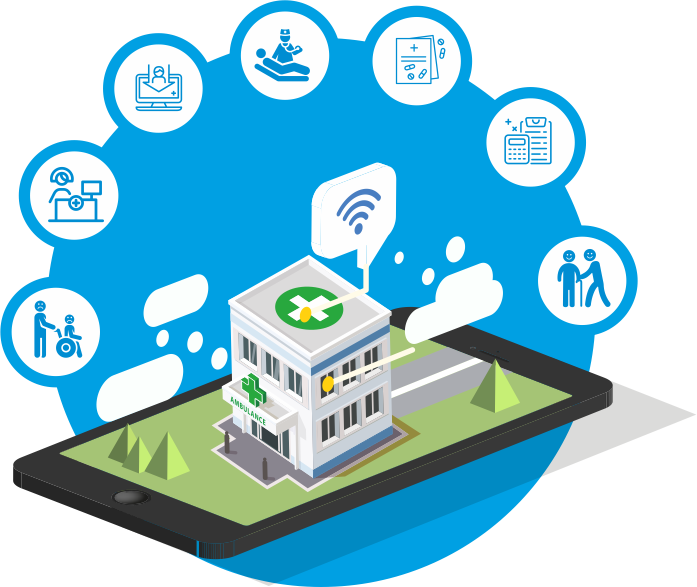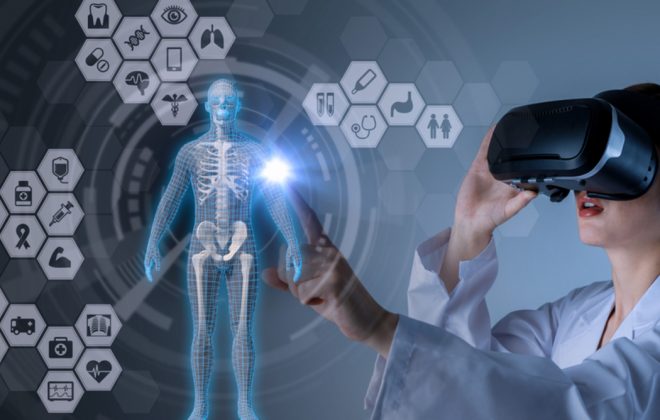10 Most Common Use Cases of AI in Healthcare
With all the industries being disrupted by the data deluge and the technologies associated with it, it was just a matter of time before healthcare too would be engulfed. Given the very nature of this sector where a humongous amount of data is being generated on an everyday basis, and accurate decision-making in real-time is the key, one can understand that the implications of AI and data can be profound. A sector which generally helps in saving people’s lives and helps improving the health of the populace will benefit greatly by technology like AI. AI use cases in healthcare are straight out of science fiction novels when one reads them, but they have already become a part the healthcare ecosystem. With AI becoming so common, one can’t help but deep dive into 10 such use cases which are revolutionizing the way caregivers are doling out their services to the patients in the new patient-centric ecosystem.
Data and Medical Records Management
Today, most of the medical records are stored electronically. AI can help in extraction and indexing of clinical notes and increase the productivity of the providers. AI models are also being used to predict the high-risk conditions and when integrated with EHR, can provide decision support.
Health Monitoring
The words wearables, as well as Fitbit, are self-explanatory, and this use case has become a part of our daily lives. That apart, there are other devices which can transmit current structure and health state of molecules. All these data are being analyzed. and with the help of AI, the caregivers can find out about the current state of a patient. AI can be used to correctly gauge the health state of the molecules of the patient and prevent any severe health attacks.
Digital Consultation
There already exist several AI-enabled bots, which when fed with the symptoms of a patient, can suggest the reasons why it is happening with the patient. All that is being made possible by the data crunching ability of the bot engine. The bot engines are sitting on humongous amounts of data which are being crunched constantly to improve the model and suggest correct responses when queried by the patient. Babylon app of UK is one such app which is widely accepted and used.
Precision Medicine
Traditionally,Genetics and genomics have been used to look for mutations and links to cancer or vascular diseases based on the information in DNA. With AI, body scans can spot early symptoms of such diseases and predict health issues.
Real-time Case Prioritization
There are already several apps which are leveraging data analysis and AI to identify the cases in hospitals, categorize them based on type and urgency and based on that, allocate those to the correct department and caregiver. Cognitive Clinical Success Machines like Jvion are doing the same to optimize the process and reducing the waiting time for patients.
Patient Data Analytics
Patient data analytics is an extension of AI application of precision medicine. While at some places, AI is being applied to identify fatal diseases at the early stages, in some other cases, it is being applied to identify and prescribe a cure for sensory organs like eyes. Many AI applications are using sleeping pattern data of patients to identify the stress level or find out if there are any underlying symptoms for the patient needs to be careful about.
Image Diagnosis
A lot diagnosis happens by the doctors consuming visuals. With AI, this becomes easier. Analysis of text, X-rays, CT scans, etc. is faster and more accurate using AI. Moreover, by eliminating the factor of human error and fatigue, AI can provide an inscrutable diagnosis. Deep learning is also being used to train the model and mature it. Image diagnosis, used in tandem with deep learning, can help in improving the quality of healthcare.
Virtual Nurses
The name is self-explanatory. Virtual nurses help patients monitor their health by following up with them, reminding them about the medication, and also following up with them with treatments. Virtual nurses are also capable of doing all that while talking stock of the vitals of the patients. For example, Molly, a virtual nurse developed by sense.ly, has become famous in health care providers’ circle.
Robotic and Assisted Surgeries
Cleveland hospital has already implemented a POC for carrying out operations while taking help of an AI machine. AI-enabled robots are used to provide guidance to surgeons for carrying out operations which require extreme precision – this eventually helps in minimizing the margin of error. AI-assisted surgeries, once matured, will help in reducing surgical variations and reduce the inefficiencies to improve patient outcomes.
Improve Hospital Efficiencies
A lot of advancements in the field of AI are poised to help healthcare institutions reduce their back-office operation costs and increase efficiencies. The nurses at the hospitals spend over 50% of their time in activities not related to patient care. AI-enabled technologies, such as voice-to-text transcription, can help hospitals enhance their administrative workflows and reduce the time spent by nurses and physicians in non-patient-care activities. Time-consuming activities such as writing charts, notes, ordering tests, or even filling prescriptions can be done by AI and could potentially save the industry lot of costs.
The use cases of AI in healthcare are fascinating. As forward-thinking hospitals embark on their journey of becoming smart hospitals, they will realize the tremendous benefits that these new technologies bring in.




